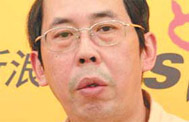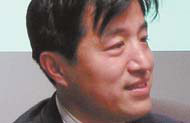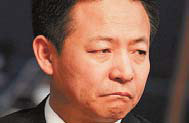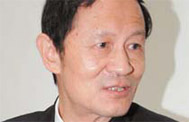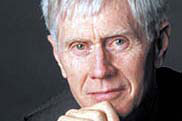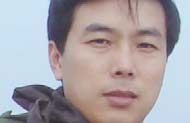Foreign and Military Affairs
Top 8 topics for Hu-Obama summit
(China Daily)
Updated: 2011-01-18 07:53
 |
Large Medium Small |
Experts from both sides of the Pacific weigh in on the hottest issues likely to be front and center when the two leaders meet during the Chinese president's four-day visit to the United States
(China Daily 01/18/2011 page6)
|
US LIFTING CURBS ON HIGH-TECH EXPORTS |
|
The United States has been controlling its high-tech exports to China, which China claims is part of the reason why bilateral trade is unbalanced. The Obama administration said it would consider lifting the ban. China has in recent years tried high-tech cooperation with other countries. |
|
Douglas Paal, vice-president for studies at the Carnegie Endowment for International Peace The US is to relax its high-tech restrictions on exports. First, we need to make the sales and boost jobs at home. Second, government restrictions, imposed for legitimate security protection, are, by nature of being governmental, slow to be implemented and slow to be removed. This leads governments to protect technologies that have long since been superseded in the marketplace and have become widely available from competitors. China will fi nd the dollar volume of restricted technologies is much smaller than what many imagine. It will not be a solution to trade imbalance. |
Wu Xinbo, associate dean of the School of International Relations and Public Affairs at Fudan University US restrictions on high-tech exports are affected by the two nations' political climate. Obama has two considerations. First, Obama actually hopes to develop a cooperative partnership with China, and has less desire to contain China than former US president George W. Bush did. Second, he has domestic economic concerns. He wants to double its exports in five years, and the high-tech sector is its strong point. What is more important are his concerns for the domestic economy, which remains in difficulty. If the economic prospects fail to improve, Obama will have no chance of a second term. |
|
EFFORTS TO COMBAT CLIMATE CHANGE |
|
China and the United States are the two biggest greenhouse gas emitters, and they have disputes in reaching agreements on containing climate change. China said the developed countries should shoulder more responsibilities for global warming as their past emissions during industrialization have contributed to the current global warming. Yet the US is trying to press more developing countries, including China, to shoulder greater responsibility. |
|
Robert C. Orr, The kind of leadership that a country like China has dramatically shown in a very short time - scaling up its efforts in the area of clean energy and climate change - is encouraging. But it is not enough either for China or any other major player. The size of the two countries (China and the US) means their geography can help solve some of the challenges. There is much room for China and the US to work together on concrete clean energy projects. If they can come to an understanding on some key political issues, I think the rest can be agreed upon. |
Pang Zhongying, scholar on international politics at Renmin University of China
|
|
SINO-US MILITARY TIES |
|
The United States declared in a joint communique signed in 1982 that it would reduce arms sales to Taiwan until they are totally stopped. Meanwhile, the US also promised to safeguard Taiwan against attacks. However, the US still continues arms sales to Taiwan, despite ties between the mainland and Taiwan getting better in recent years. A $6.4-billion arms package at the beginning of 2010 again brought the topic into the limelight.
|
|
Kenneth Lieberthal, director of John L. Thornton China Center at the Brookings Institution We share some security interests that are very important, especially the issue of nuclear proliferation, which includes the Korean Peninsula and Iran. We also have some issues between our militaries. China's military is growing larger with a larger footprint. Chinese and American military forces are increasingly operating in similar areas. We need to get more eff ective communication between our militaries. So I think those are the major areas in addition to conceptualizing what kind of relationship we want to have. |
senior expert in foreign military studies at the Academy of Military Sciences Sino-US military relations, security and mutual trust have indeed had a growing impact on overall bilateral relations. Military relations have moved from the periphery to the center, and thus had a greater influence on overall relations. In the past, poor military relations only had a superficial effect, now the impact could be significant and deep. However, factors causing unstable bilateral military relations are hard to erase. Their impact on overall relations - negative for most of the time - is growing along with their increased status. |
|
TENSION ON THE KOREAN PENINSULA |
|
Denuclearization of the Korean Peninsula has always been a focus of regional peace and stability as well as China-US cooperation. Yet the two countries sometimes differ in their ways to achieve the goal. China emphasizes talk and negotiation, while the United States sometimes vows to resort to wielding arms. The latest exchange of artillery fire between the two Koreas in November has threatened regional peace. |
|
Jerome Cohen, professor at New York University School of Law
I think the Chinese government has showed increased activism in trying to improve the relationship on the Korean Peninsula. That makes the atmosphere for Hu Jintao's visit quite good. I think we also realize on both sides that we need each other and we can work together on many questions, if not all. |
Shi Yinhong, director of the Center for American Studies at Renmin University of China
The US used to say it and China were responsible stakeholders, which means that it hoped China would play an important role on the basis of mutual respect. But in the military arena, the US doesn't treat China as a stakeholder. It asks China for too much on the issues of the yuan and the Korean Peninsula nuclear issue, and does so with a bad attitude. And its demands are not for the good of the international community but its own interests. The US, in terms of Korean Peninsula nuclear issue, sees China as a strategic enemy. |
|
CURRENCY ISSUES |
|
The United States has accused China of artificially undervaluing its yuan to benefit its exporters and demanded a drastic appreciation of the yuan. Yet China said its exchange rate is not the reason behind unbalanced trade, and it will continue to steadily push forward the reform of the yuan's exchange rate mechanism in a self-initiated, controllable and gradual manner. |
|
Stephen Roach, Morgan Stanley Asia's non-executive chairman
The US has a multilateral trade deficit with 90 countries. It is ridiculous to think that an adjustment in the yuan versus the dollar will solve the US' multilateral problem. You don't fix a multilateral problem with a bilateral currency adjustment. That will not work. But if the US tries to address its multilateral problem by putting pressure on China, the Chinese piece of American imbalance will just go to somebody else. |
Sun Lijian, deputy dean of the School of Economics at Fudan University
Compared with the United States, China is weak in the international financial market. China is yet to have the power to internationalize its currency. Too much push in this regard will lead to an overheated financial market, and its capital might be hijacked by real estate dealers, which will create a situation more serious than that in Japan. Therefore, its economic bubble will be as severe as that of Japan. |
|
CHINA'S IPR PROTECTION EFFORTS |
|
The United States has blamed China for rampant intellectual property rights infringements, saying the infringements have damaged the interests of its products. China has stepped up its effort in intellectual property rights protection, yet still has a long way to go in the sector. |
|
Carsten Fink, What is remarkable in the case of China is that patent filings have grown at a much faster rate than economic output. This reflects the increased recognition of Chinese companies that patents are an important instrument to benefit from innovation and create a competitive edge. The high levels of patenting growth reflect the rapid and ongoing transformation of the Chinese economy towards an economy where knowledge production is a core activity, and invariably set an example for other developing countries. |
Pang Zhongying, scholar on international politics at Renmin University of China
In terms of the protection of intellectual property, China is no longer in a passive position as in the past. The US used to ask China to protect its intellectual property. But now there are also cases in which China's intellectual property is violated. So China started to ask the US to protect its intellectual property. The major difference between the two nations is that the US requires China to cancel its subsidies for its enterprises related to self-innovation.
|
|
TRADE IMBALANCES |
|
China and the United States are each other's second largest trading partners and bilateral trade reached $385 billion in 2010, with China having a trade surplus. The US blames China for its job losses, yet China said it does not intentionally pursue trade surpluses. The surplus is mainly because of trade structures. |
|
Stephen Roach, Morgan Stanley Asia's non-executive chairman
|
He Weiwen, council member of the China Society for World Trade Organization Studies
Many problems in Sino-US trade will continue in 2011. But this won't change the fast growth of trade. We are unlikely to be able to set aside quarrels and will lose many opportunities for growth if we do not find new approaches to dealing with imbalances in trade. The major reason for the huge surplus is trade within multinational companies, which takes the form of processing trade. We should take full advantage of the rare opportunity of China's economic restructuring and upgrading in the coming five years, and promote US exports to China. |
|
US BACK IN ASIA |
|
The Asia-Pacific region has traditionally been a place of strategic importance, yet with its increasing clout China has become an ever-important player, challenging the United States' role. The Obama administration has made a notable refocusing of its Asia policy in 2010, interfering in some affairs between China and its neighboring countries. |
|
Orville Schell, Arthur Ross director of the Center on US-China Relations at the Asia Society
China sometimes is glad about its success economically. Sometimes it tends to do things in a precipitous manner, let's say, without much interaction with other powers. It surprises people. I think the question of the South China Sea as a core interest has a very profound effect, not just on China-US relations, but on China's relations with the rest of Asia. |
Wang Fan, director of the Institute of International Relations at China Foreign Affairs University
Being aggressive in East Asia now, the US is actually seeking a new balance. The core of its strategy is to contain China's increasing influence in the Asia-Pacifi cregion. I don't think China and its neighbors are unable to live together with the US back in this region. The surrounding nations are not choosing sides. They cooperate with the US on some issues and with China on others. Of course, the US has an advantage in terms of its infl uence, but China has an advantage geographically. The US will not necessarily benefit from creating disputes between China and its neighbors. |
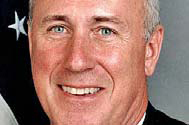
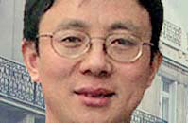

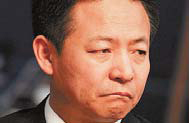

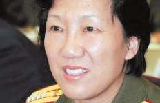 Yao Yunzhu,
Yao Yunzhu,
